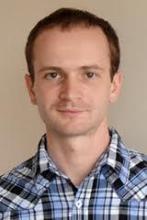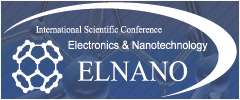Serhiy Romanenko

Serhiy Romanenko, Ph.D., biophysicist, neurobiologist and electrophysiologist, whose career is an example of the intersection of physical sciences and biomedical research. Having received a bachelor's degree in electronics and a master's degree in physical and biomedical electronics at the National Technical University of Ukraine "Kyiv Polytechnic Institute", he obtained a candidate of biological sciences (PhD) degree in biophysics at the International Center of Molecular Physiology at the Institute of Physiology named after O.O. Bogomolets of the National Academy of Sciences of Ukraine in 2010, proving himself as an innovative researcher in the field of cellular biophysics.
His scientific career was formed at universities on three continents, including a postdoctoral fellowship at the California Institute of Technology in collaboration with the Huntington Medical Research Institute, research work at the University of Western Australia and the XLIM Research Institute in France. Currently, he continues to work as a senior researcher in the Department of Biophysics of Sensory Signaling of the Institute of Physiology named after O.O. Bogomolets National Academy of Sciences of Ukraine.
Much of his research has been devoted to the study of neuromodulation and cellular excitability, with a special focus on the mechanisms underlying the effects of bioelectromagnetic radiation on excitable cells and membrane channels. His pioneering work on millimeter wave-mediated modulation of neuronal activity was one of the first in the last decade to demonstrate the effect of T radiation on the functionality of excitable cells. Other areas of research include the innovative application of powerful nano-/picosecond electrical pulses and the effects of modulated EHF radiation on various cell types. His interdisciplinary expertise covers cellular electrophysiology, fluorescence methods, and numerical and computer modeling of biophysical processes. Research interests extend to the mechanisms of pain transmission, in particular the role of TRPV receptors, neuronal networks in the spinal cord and the peculiarities of the functioning of different types of nerve cells, as well as the complex interaction between channels and membrane lipids.
His scientific achievements were recognized by international awards and research grants. In 2022, he won the prestigious European Microwave Association (EuMA) Award and in 2019 he received an Australian Synchrotron Research Grant (ANSTO) for pioneering research into the effects of non-ionizing radiation. Innovative ideas in the development of cancer treatment strategies have been recognized with a 2018 Collaborative Cancer Research Grant from the Cancer Council of Western Australia, as well as a 2017 Research Collaboration Award at UWA. Previous career achievements include the Boswell Fellowship at the California Institute of Technology (2011), the President of Ukraine Fellowship for Young Scientists (2009) and a CIMO grant from Finland. He also received a grant for a trip to Okinawa - Computational Neuroscience Grant (2016).
Scientific activities include development and construction of laboratory test devices and modification of electrophysiological and fluorescent devices. His research continues to deepen the understanding of neural networks, mechanisms of pain transmission and the influence of non-chemical factors on living tissues, making significant contributions to both basic neurology and its clinical application. Thanks to his interdisciplinary approach, which combines technical innovation with fundamental neurology, k.b. .n. Romanenko continues to deepen our understanding of neural functions and develop new therapeutic approaches.



